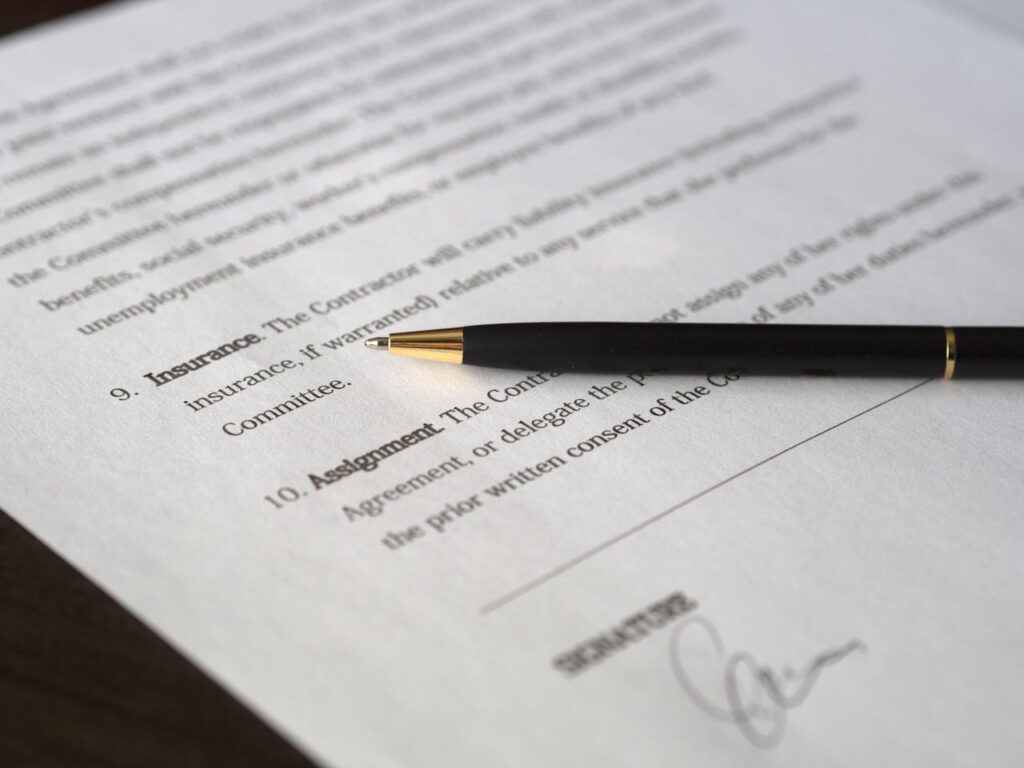Starting a new business is exciting! You’re turning your passion into reality. But with the thrill of entrepreneurship comes responsibility. One of the most important things is protecting your business from eventual losses.

Tragic events can occur, and it pays to be vigilant. As a small business owner, you should understand and manage these risks to protect your company from lawsuits or financial damage. By taking proactive measures to mitigate liability such as a solid financial model, you can focus on growing your business with more peace of mind.
Here are four useful tips to avoid common liability pitfalls.
1. Secure General Liability Insurance Early On
One of the most fundamental decisions you can make as a new business owner is getting general liability insurance. According to Forbes, this insurance helps protect your business against third-party allegations involving physical harm, material damage, and copyright claims. For instance, if a customer gets injured on your premises, general liability insurance can offset their healthcare bills and legal costs if they sue.
Depending on your business type, you might also require various liability insurance. For example, product liability insurance safeguards against claims of harm caused by substandard goods. Likewise, professional liability insurance (aka errors and omissions insurance) caters to errors or misconduct in professional services. Getting the right coverage in place early on means you are ready for the eventualities.
Additionally, a Business Owner’s Policy (BOP) combines general liability with property and business interruption insurance. Hence, it’s a great way to receive broader protection at a reasonable cost. On average, it costs about $57 monthly and can provide add-ons like cybersecurity liability insurance. To avoid coverage gaps, customize your insurance policy to your business’s requirements.
2. Understand and Limit Personal Liability
Establishing the right business structure is critical for limiting personal liability. Many first-time business owners choose sole proprietorship because it’s straightforward. However, FindLaw reveals this can leave personal assets vulnerable if the business faces legal action. Incorporating it as an LLC or corporation can help shield personal assets from being targeted in lawsuits.
Forming an LLC, for example, separates your business assets from your assets. Thus, you’re not liable for the company’s debts or legal issues. This can be particularly useful if your business involves physical operations, as there are high accident risks.
Think about it: a customer who slips and hurts themselves in your store could hire a personal injury lawyer to file a lawsuit. This can be a costly scenario, making it crucial to prioritize safety and prevent accidents in the first place.
Consulting professionals to assess your risks and ensure you have adequate safety measures in place is always a smart move. This simple precaution can save you from significant financial losses down the line.
According to TorHoerman Law, these cases involve damages related to medical bills, lost income, physical and emotional pain, and suffering. Some cases might involve punitive damages, which can cost hundreds of thousands. Hence, it’s crucial to have a professional at your fingertips.
3. Protect Against Employee-Related Risks
When you hire employees, protecting yourself from potential liabilities like workplace injuries, harassment claims, or wrongful termination suits is vital. NerdWallet reports that workers’ compensation insurance is mandated in most jurisdictions if you reach the employee threshold. It grants financial assistance for medical care and lost income if an employee is harmed while working.
Failing to carry workers’ compensation can cause costly fines and lawsuits, so check your state’s requirements. Beyond insurance, having clear and comprehensive employee policies can help safeguard your enterprise from legal conflicts. Creating policies on workplace behavior, safety practices, and disciplinary procedures keeps employees informed and serves as a defense should any legal claims arise.
Routinely evaluate and revise these policies. It ensures they remain valid and reliable as your business grows.
4. Avoid Contractual Oversights
Contracts are the foundation of your business relationships with customers, vendors, and employees. U.S. News & World Report states that poorly written contracts or, worse, verbal agreements, can expose you to liability. Double-check that all contracts are thorough, extensive, and legally accurate. Work with an attorney to draft or review all your contracts. This can eliminate misgivings that give rise to legal conflicts.
For instance, a vague service contract might leave you liable for damages or lost revenue if a client feels unsatisfied. To avoid such issues, contracts should clearly outline the scope of work, payment terms, and each party’s responsibilities. Having robust contractual protections can save your business from unnecessary disputes and legal battles. It’s better to ensure your contracts are airtight rather than facing costly litigation later.
Frequently Asked Questions
Q1. How do I know whether my insurance is enough for my business?
There’s no one-size-fits-all answer, as every business is unique. Contact an insurance advisor or agent to discuss your preferences and risks. They can help define the specific categories and amounts of business coverage. Make a habit of regularly reviewing your policies as your business scales and adapts.
Q2. Do I really need a lawyer to review my contracts?
While it might seem like an extra expense, having a lawyer review your contracts can save you potential trouble and money. They can spot potential problems, ensure your contracts are enforceable, and help you avoid costly legal disputes. Consider it an outlay for sustaining your business.
Q3. Can I be held personally accountable for my business debts?
It relies on your business setup. Sole proprietors and co-partners can be held culpable for commercial debts. However, forming an LLC or corporation can protect your assets from business liabilities in most cases, though there are some exceptions.
As a small business proprietor, safeguarding your venture from liability risks is as important as growing your customer base. Avoiding common liability pitfalls ensures the long-term success of your business. By applying the suggested principles, you can reduce the risk and focus on growing the business.
Remember, proactive liability management is key to long-term success. Regularly review and update your practices to ensure your business remains protected in an ever-changing business landscape. These steps now will help safeguard your business and enable you to operate confidently.









0 Comments